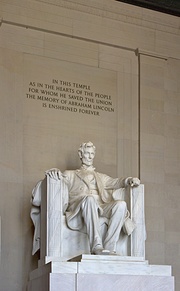Wikipedia:Honesty
Appearance
| The following is a proposed Wikipedia policy, guideline, or process. The proposal may still be in development, under discussion, or in the process of gathering consensus for adoption. |
This is an explanatory essay about Error: No page specified. This page provides additional information about concepts in the page(s) it supplements. This page is not one of Wikipedia's policies or guidelines as it has not been thoroughly vetted by the community. |
| This page in a nutshell: Lying is unethical and hurts the project. |
| “ | It is wrong to lie to the community about anything. | ” |
| — --Jimbo Wales 18:00, 16 March 2007 (UTC) | ||

Honesty is expected in all processes of Wikipedia, including content discussion, the dispute process and all other functions of the community. Editors are reminded that while you may expect an assumption of good faith, this is based on the counter-assumption of honesty in your actions.
Honesty in actions
An honest Wikipedian:
- Does not say things they know to be untrue simply to support their argument.
- Does not cite sources they know to be unreliable, or represent sources with a bias as being neutral. In cases involving articles with a very long list of citations, not all citations may be fully examined, and editors should not abuse this tendancy as an avoidance of the citation requirements.
- Does not intentionally misrepresent their credentials. The choice of anonymity and pseudonymity is part of Wikipedia, but it is not a license to fabricate real world credentials. It is strongly recommended that you decline to share details you wish to keep secret rather than inventing alternatives. Fabrication of credentials will lose an editor credibility and damage the credibility of the project as a whole.
- Does not argue in favor of something they think is wrong. Disruptive point making is one of the most oft-cited and important real-world examples of this.
- Does not hide their personal point of view when they may affect their editing. While editors attempt to edit as if they have no point of view, conflicts of interests can only be assessed when users are honest about their motivations.
- Does proffer all relevant information to a discussion they know to be true, even when it might not support their argument. Withholding of information that contradicts other information, or filtering out data-points that do not match your assumptions, is dishonesty by omission.
